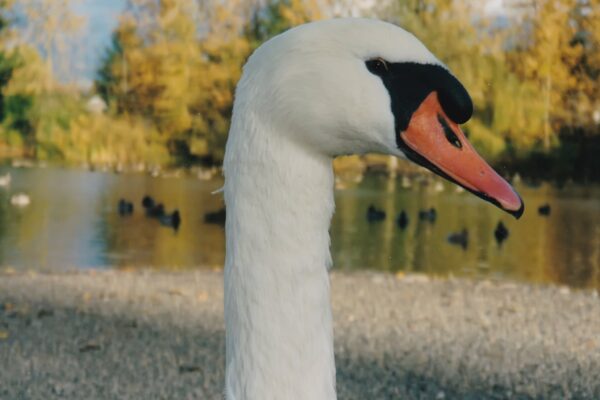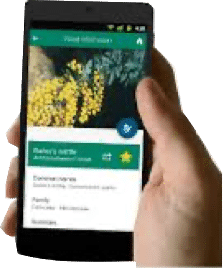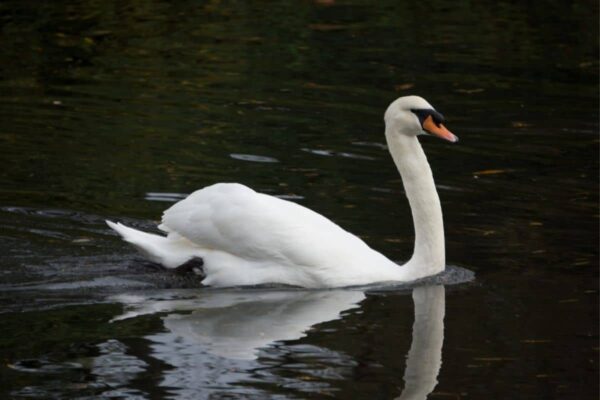Mute swan
Warning
Mute swans will aggressively defend their nests and young if they feel threatened. These large birds can easily injure people and pets. In general, it is always a good idea to keep a respectful distance between yourself and any large waterfowl.
About This Species
Mute swans are native to Europe and Asia and became invasive throughout North America after being intentionally introduced by settlers in the 1870s. These large birds have few natural predators in BC and can raise up to eight young in a year. Adults may weigh between 11-19 kg. Requiring up to 4 kg of food each day, they feed on mainly submerged aquatic plants in marshes, lakes, and rivers, and uproot the plants they eat. This reduces food and habitat for native waterfowl and other wildlife and can drastically alter aquatic ecosystems. Mute swans are designated as a Management species by the BC Provincial Priority Invasive Species List.
How to Identify
Adult Mute swans are a large white swan that have bright orange bills with a black knob at the base, while both other species have black bills. Juvenile Mute swans have grey bills with a less pronounced black knob and a ring of white plumage around the beak and eye.
Two other species of swan are known to overwinter in Southwestern BC, the Trumpeter swan (Cygnus buccinator) and the Tundra swan (Cygnus columbianus). They both have pure black bills and hold their necks in a “C” shape. Juveniles of these species have grey plumage.

Take Action
Prevention is the best approach.
-
If you need advice about invasive species on your property or you are concerned about reported invasives in your local area, contact your local government or regional invasive species organization.
prevention tips
Do not feed wild swans.
If swans are nesting on your property, contact Canadian Wildlife Services at ec.permisscf-cwspermit.ec@canada.ca.
REPORT TO PROTECT BC’S BIODIVERSITY

Use the app
Observe and report to protect BC’s biodiversity

Report through this website
Use our form to tell us what you’re seeing and where.



